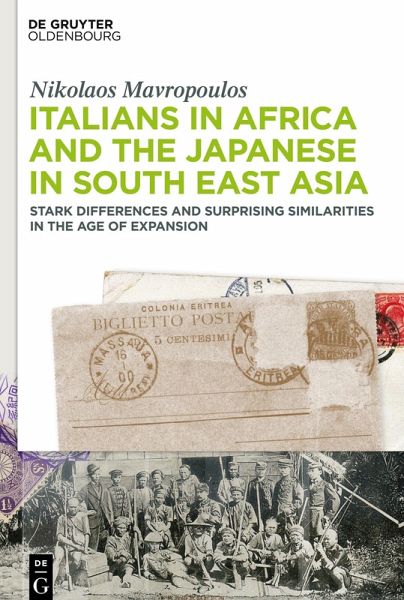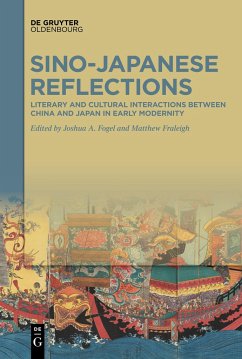
Italians in Africa and the Japanese in South East Asia
Stark Differences and Surprising Similarities in the Age of Expansion

PAYBACK Punkte
0 °P sammeln!
The comparison of early Italy's and Japan's colonialism is without precedence. The majority of studies on Italian and Japanese expansion refer to the 1930-1940s period (fascist/totalitarian era) when Japan annexed Manchuria (1931) and Italy Ethiopia (1936). The first formative and crucial steps that paved the way for this expansion have been neglected. This analysis covers a range of social, political and economic parameters illuminating the diversity but also the common ground of the nature and aspirations of Japan's and Italy's early colonial systems. The two states alongside the Great Power...
The comparison of early Italy's and Japan's colonialism is without precedence. The majority of studies on Italian and Japanese expansion refer to the 1930-1940s period (fascist/totalitarian era) when Japan annexed Manchuria (1931) and Italy Ethiopia (1936). The first formative and crucial steps that paved the way for this expansion have been neglected.
This analysis covers a range of social, political and economic parameters illuminating the diversity but also the common ground of the nature and aspirations of Japan's and Italy's early colonial systems. The two states alongside the Great Powers of the era expanded in the name of humanism and civilization but in reality in a way typically imperialistic, they sought territorial compensations, financial privileges and prestige. A parallel and deeper understanding of the nineteenth century socio-cultural-psychological parameters, such as tradition, mentality, and religion that shaped and explain the later ideological framework of Rome's and T ky 's expansionist disposition, has never been attempted before. This monograph offers a detailed examination of the phenomenon of colonialism by examining the issue from two different angles. The study contributes to the understanding of Italy's and Japan's early imperial expansion. In addition, it traces the origins of these states' similar and common historical evolution in late nineteenth and the first half of the twentieth century.
This analysis covers a range of social, political and economic parameters illuminating the diversity but also the common ground of the nature and aspirations of Japan's and Italy's early colonial systems. The two states alongside the Great Powers of the era expanded in the name of humanism and civilization but in reality in a way typically imperialistic, they sought territorial compensations, financial privileges and prestige. A parallel and deeper understanding of the nineteenth century socio-cultural-psychological parameters, such as tradition, mentality, and religion that shaped and explain the later ideological framework of Rome's and T ky 's expansionist disposition, has never been attempted before. This monograph offers a detailed examination of the phenomenon of colonialism by examining the issue from two different angles. The study contributes to the understanding of Italy's and Japan's early imperial expansion. In addition, it traces the origins of these states' similar and common historical evolution in late nineteenth and the first half of the twentieth century.













